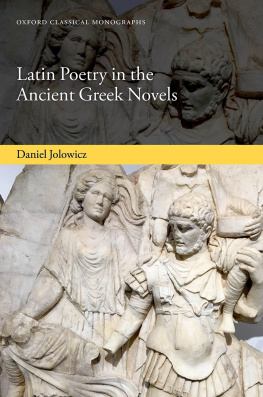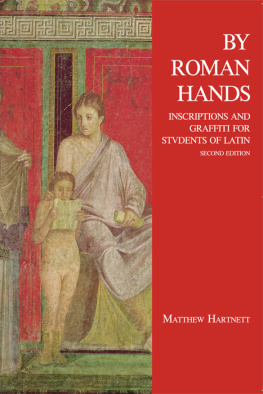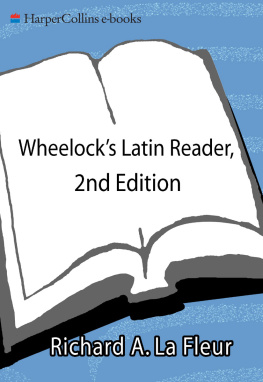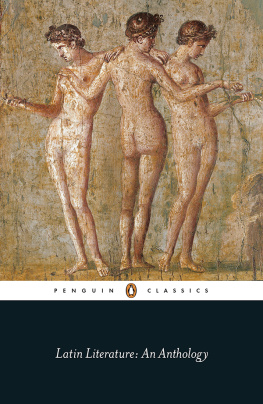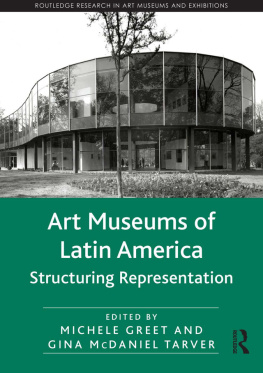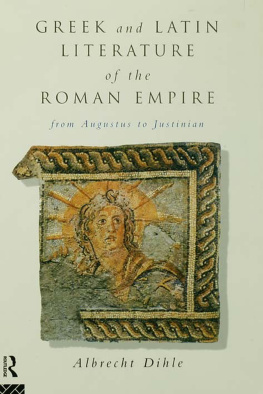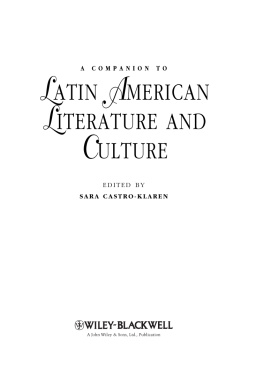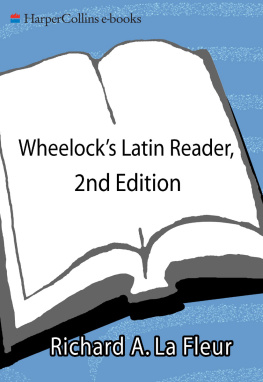The Rhetoric of Roman Transportation
Latin literature is crowded with portraits of Romans in transit, but despite this ubiquity scholars have been reluctant to read vehicles as significant conveyors of textual and cultural meaning. This book offers the first systematic analysis of the representation of Roman vehicles in Latin literary texts. By moving past approaches that count such vehicular portrayals as either transparent glimpses of reality or soaring poetic symbols, it demonstrates how these conveyances work as a system of representation to structure both the texts in which they appear and underlying cultural discourses surrounding power, gender, and empire. Arranged as a series of interlocking studies, each chapter explores the representation of a particular conveyance across author and text, from the humblest and most quotidian ( plaustrum ) to the most exalted and symbol-laden ( currus ).
Jared Hudson is an Associate Professor of the Classics at Harvard University, Massachusetts.
The Rhetoric of Roman Transportation
Vehicles in Latin Literature
Jared Hudson
Harvard University, Massachusetts

University Printing House, Cambridge CB 2 8 BS , United Kingdom
One Liberty Plaza, 20th Floor, New York, NY 10006, USA
477 Williamstown Road, Port Melbourne, VIC 3207, Australia
314321, 3rd Floor, Plot 3, Splendor Forum, Jasola District Centre, New Delhi 110025, India
79 Anson Road, #0604/06, Singapore 079906
Cambridge University Press is part of the University of Cambridge.
It furthers the Universitys mission by disseminating knowledge in the pursuit of education, learning, and research at the highest international levels of excellence.
www.cambridge.org
Information on this title: www.cambridge.org/9781108481762
DOI: 10.1017/9781108667678
Jared Hudson 2021
This publication is in copyright. Subject to statutory exception and to the provisions of relevant collective licensing agreements, no reproduction of any part may take place without the written permission of Cambridge University Press.
First published 2021
A catalogue record for this publication is available from the British Library.
ISBN 978-1-108-48176-2 Hardback
Cambridge University Press has no responsibility for the persistence or accuracy of URLs for external or third-party internet websites referred to in this publication and does not guarantee that any content on such websites is, or will remain, accurate or appropriate.
Now there being no travelling through France and Italy without a chaise and nature generally prompting us to the thing we are fittest for, I walkd out into the coach yard to buy or hire something of that kind to my purpose: an old Desobligeant in the furthest corner of the court, hit my fancy at first sight, so I instantly got into it, and finding it in tolerable harmony with my feelings I drew the taffeta curtain and being determined to write my journey, I took out my pen and ink, and wrote the preface to it in the Desobligeant.
L. Sterne, A Sentimental Journey
Contents
Acknowledgments
Like most long trips, however solitary or self-powered they may seem, this one has only been possible with the help and support of others. It is a pleasure to thank some of the people and institutions that have helped me cover much ground in the writing of this book. Without John Henderson, a most inspiring teacher, writer, reader, and interlocutor, I would never have set out. I am very grateful to the Classics Department at the University of California, Berkeley, to John Ferrari, Mark Griffith, Leslie Kurke, Tony Long, Donald Mastronarde, Kathy McCarthy, Charles Murgia, Trevor Murphy, and above all to Nelly Oliensis, Maurizio Bettini, and Dylan Sailor, who guided my dissertation, helping me find its path and complete the first leg of its journey. Nelly saw where I was going (long before I did), and has helped and inspired me with her brilliant example all along the way. Reinvigorating stopovers at the Centro Antropologia e Mondo Antico in the Universit degli Studi di Siena (thanks to Maurizio Bettini), at Kings College, Cambridge (thanks to John Henderson), and Trinity Universitys Classical Studies Department (thanks to Erwin Cook, Nicolle Hirschfeld, Tom Jenkins, Tim OSullivan, and Corinne Pache), all helped the project pick up speed. Colleagues, staff, and students in the Department of the Classics at Harvard University have helped me in numerous ways and, in particular, I am grateful to Kathy Coleman, Richard Thomas, and Naomi Weiss for providing valuable support, advice, and encouragement. I have had the opportunity to share some of the ideas in this book at Stanford, UCLA, Indiana University, UC Davis, Kings College London, and Murray Edwards College, Cambridge, and I am grateful to my hosts and audiences for stimulating thoughts and questions. Tim OSullivan, Kathy Coleman, and John Henderson provided encouraging and bracing comments on earlier drafts. The book has been greatly improved by the incisive and constructive feedback of the anonymous readers for the Press. I thank Michael Sharp, who has been extraordinarily helpful in guiding the book to publication, and Caroline Morley, Neena Maheen, and Lesley Hay for their invaluable assistance. I am grateful to the University of California Press and Oxford University Press for permission to include material appearing in, respectively, Carpento Certe : Conveying Gender in Roman Transportation, ( Classical Antiquity 35.2, 2016) and Obviam : The Space of Vehiculation in Latin Literature ( in The Production of Space in Latin Literature , ed. W. Fitzgerald and E. Spentzou, 2018). BART, ATAC, AC Transit, SFMTA, and MBTA helped me go in directions that I could never have predicted. I am thankful most of all to my friends and family, especially to Justine and John, Mary and Jim, Warner, and Anne; to Eliot, who has shared his love of vehicles with me, and taught me so much about them; but above all to Hannah, who has gone to enormous lengths in helping me to carry the weight of this book since we set off together. I dedicate it to her.
Abbreviations for Latin and Greek references follow the Oxford Classical Dictionary (4th edn.), or, for those not included in it, the Oxford Latin Dictionary or LSJ . All quotations are taken from the most recent Oxford Classical Texts, and all translations are mine, unless otherwise noted.
Preamble
On the Way
First, a tale about one Roman on the way and another who gets in the way:
quanta libido quantaque intemperantia sit hominum adulescentium, unum exemplum uobis ostendam. his annis paucis ex Asia missus est, qui per id tempus magistratum non ceperat, homo adulescens pro legato. is in lectica ferebatur. ei obuiam bubulcus de plebe Venusina aduenit et per iocum, cum ignoraret, qui ferretur, rogauit, num mortuum ferrent. ubi id audiuit, lecticam iussit deponi, struppis, quibus lectica deligata erat, usque adeo uerberari iussit, dum animam efflauit.
I shall give you just one example of the excessive wantonness and lack of self-control of young men. A few years ago, a young man who had not held office as a magistrate at the time was sent as an envoy back from Asia. He was carried in a litter ( lectica ). A plowman, a commoner from Venusia, met him on the way and, not knowing who was being carried, asked as a joke whether it was a dead man they were carrying. When the young man heard this, he ordered that the litter be set down and that the man be beaten to death with the straps holding the litter together.


